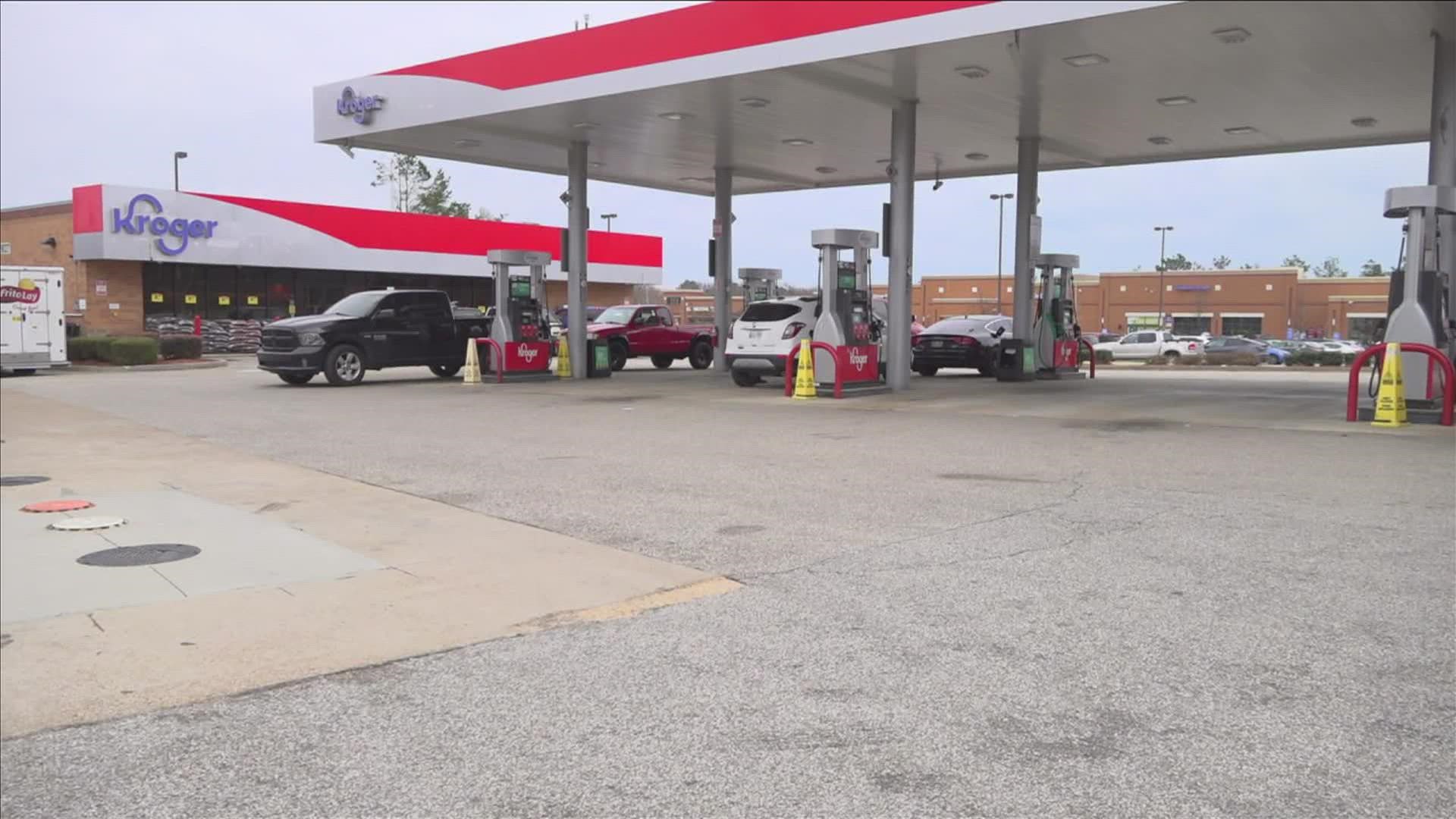MEMPHIS, Tenn. — Gas prices have reached an all-time high in the U.S. It is the highest it’s ever been in our history.
If you don’t feel it in your pockets yet, you will.
Here's why we're seeing these price hikes and here's when they're expected to go back down.
“There's a saying in economics that there's no such thing as free food,” said 901 Economics president John Gnuschke.
Gas certainly fits the bill. In the Mid-South, we’ve jumped roughly 10 cents in a day.
Gnuschke said the hike has all to do with the Russia-Ukraine conflict.
“We want to deal with Ukraine and the Russian situation there. And yet, we don't want to drive up the price of oil and gas at the pump, but you can't have both,” said Gnuschke.
That's why we see the increase at the pump.
“When we import oil, we only import a very small percentage of our total use from Russia. So this is only going to impact a very little bit in the US where it would impact most is in Europe,” said Gnuschke.
Our international companies such as FedEx and AutoZone are greatly impacted as well. If we import so little, why is it hitting our pockets so much?
“When we're asleep. People in other parts of the world are using gas. So, we have to recognize that it's just not a Memphis market. It's not a Tennessee market. It's a global market,” said Gnuschke.
Here's another way to look at it.
“If Exxon can sell gas at $6 a gallon in Europe and can sell it at 3.50 in the US, where do you think they're going to sell it,” asked Dr. Gnuschke.
It's a no-brainer.
“The prices are high, this is a good time to sell it,” said Dr. Gnuschke. “We've got to expand the use of oil is coming from other places other than Russia … Oil companies are very, very smart. They produce as much oil as they can when prices are high. So, they’re pumping right now.”
While oil companies try to meet the demand globally, what can we do to save at home?
“Whenever they can, consumers should take public transportation. But that's not a very good option in Memphis,” said Gnuschke. “What you've got to do is economize on how frequently you drive and how far you drive and how much gas you waste.”
That means consumers will have to budget when it comes to gas.
“It's going to hurt us in the pocketbook, both each week when we fill up and each month when we have to pay our bills,” said Gnuschke.
While economists expect the increase to stop once the conflict is over, they also predict it will be early summer before we see any price drops.
“It wouldn't surprise me to see another 50 cents, okay, at the pump. And if we see more than that, you'll need to come back and talk to me again,” said Gnuschke.

